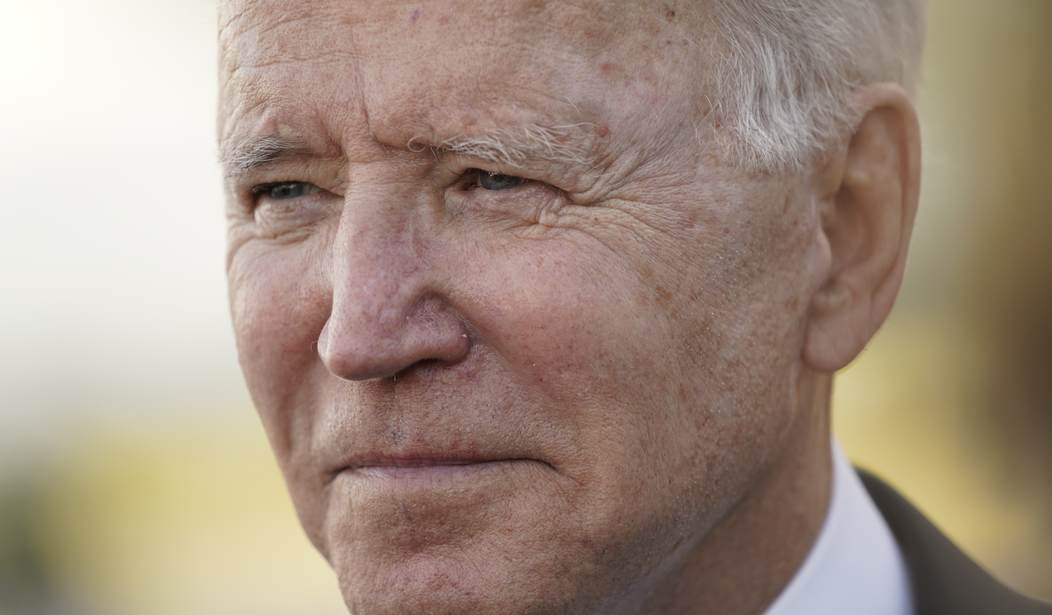The Biden administration is proposing a massive expansion of the federal government the likes of which Americans have not seen in our lifetimes. Bill Clinton once declared that “the era of big government is over.” Through his policies Joe Biden replies, “Big government is back, baby!” They’re both Democrats, and Biden used to cast himself as a moderate.
Biden’s policies — jettisoning his longtime support for the Hyde amendment, his new stance on hardline gun control, his failure to back up law enforcement, and politicizing the U.S. military — indicate that he has cast all moderation aside.
Joe Biden’s voters are starting to see that they will pay a high price, literally, for their vote. Inflation is back and will disproportionately hit the middle- and lower-income brackets. The Biden administration is proposing to make $6 trillion budgets the baseline for federal spending going forward. Many are now clutching their wallets and regretting their vote.
Call it “Biden remorse.” Americans are still wary of big government, though not as much as they were a few years ago. We probably have Obama and COVID to thank for that. Many of Biden’s voters wanted him to be a moderate salve after the Trump years. He’s not that, not even close. Biden often cites President Franklin Roosevelt but he’s more in the mold of Woodrow Wilson, governing as a hard-edged progressive ideologue who seeks and brooks no compromise with the half the country that did not vote for him.
Just look at spending. The Biden spending plan will make $1 to $2 trillion federal deficits the norm, not the exception. Justin Haskins of the Heartland Institute wrote at Fox Business on June 12, 2021, that “as expected, Biden’s budget includes many of the large government spending programs the White House has been pushing for months, including $115 billion for roads and bridges, $225 billion for child care subsidies, $174 billion for electric vehicles and $109 billion for ‘free’ community college, among many other items.” Haskins points out that this proposal would lead to record debt, higher taxes, inflation, a devaluation of the American dollar, and high interest rates. Haskins worries that these policies would be “absolutely catastrophic for the economy”–and he’s right. We’re already seeing the inevitable inflation and even the Fed is getting jittery. Biden’s spending of other people’s money on this scale is neither responsible nor sustainable.
Biden’s federal spending spree is not the only place where the expansion of federal power is problematic. The Cato Institute’s Chris Edwards writes about how the Biden administration’s proposals are likely to fail, because they are encroaching on the traditional policy territory of state and local governments in addition to the private sector. Edwards wrote on April 30, 2021:
“Biden’s plans would impose large budget costs, but perhaps a larger problem is that the federal government is the worst institution to tackle the issues the president is focused on. Decades of experience with federal spending programs show that the government suffers from severe political, bureaucratic, and knowledge shortcomings that often make its actions inefficient, harmful, and sometimes disastrous. While federal programs help some people, they usually create costs and negative side effects that outweigh the benefits.”
The costs to the economy as a whole will be devastating while benefiting just a few.
Edwards points out a number of reasons why the federal government tends to do more harm than good over the long term. One reason is that “legislators often act counter to the broad public interest. While America is a democracy, logrolling in Congress allows frequent enactment of programs that do not have majority support in the legislature or in the nation. Once programs become law, they get entrenched and difficult to reform or repeal.”
So many programs on the books become zombie programs with no end in sight because once a government program is established, it never dies or goes away absent specific sunset provisions. Some federal programs appear designed to outlive the republic itself. Unlike a private entity, cost-effective management and spending are not a priority of the federal government–and when it comes to federal contracting, there is an incentive to keep bloated projects on autopilot with spending growth baked in. In federal budget language, even a reduction of a program’s spending growth rate is often characterized as a “cut.”
A great example of a big-spending program that has proven impossible to remove from the books is the overly expensive F-35 Joint Strike Fighter (JSF) program. The F-35 is expected to chew up $1.7 trillion over the program’s lifetime and it has been plagued by missed deadlines and design flaws. The cost of this program is unprecedented, yet there is no indication that the Biden administration is looking for any cuts to offset new spending. They seem to be relying on an overheated printing press churning out enough pallets of dollars to fill the warehouse at the end of Raiders of the Lost Ark and higher taxes to make up some of the difference between massive new spending programs and revenues.
Related: Why the F-35 Just Isn’t Good Enough
A smart federal government would innovate and move towards the Next Generation Air Dominance (NGAD) program as a way to save money and modernize the military. But is the federal government smart? Has it ever really been? Ask anyone who’s suffering from “Biden remorse” right now, or anyone who just wants the federal government to leave them alone.









Join the conversation as a VIP Member